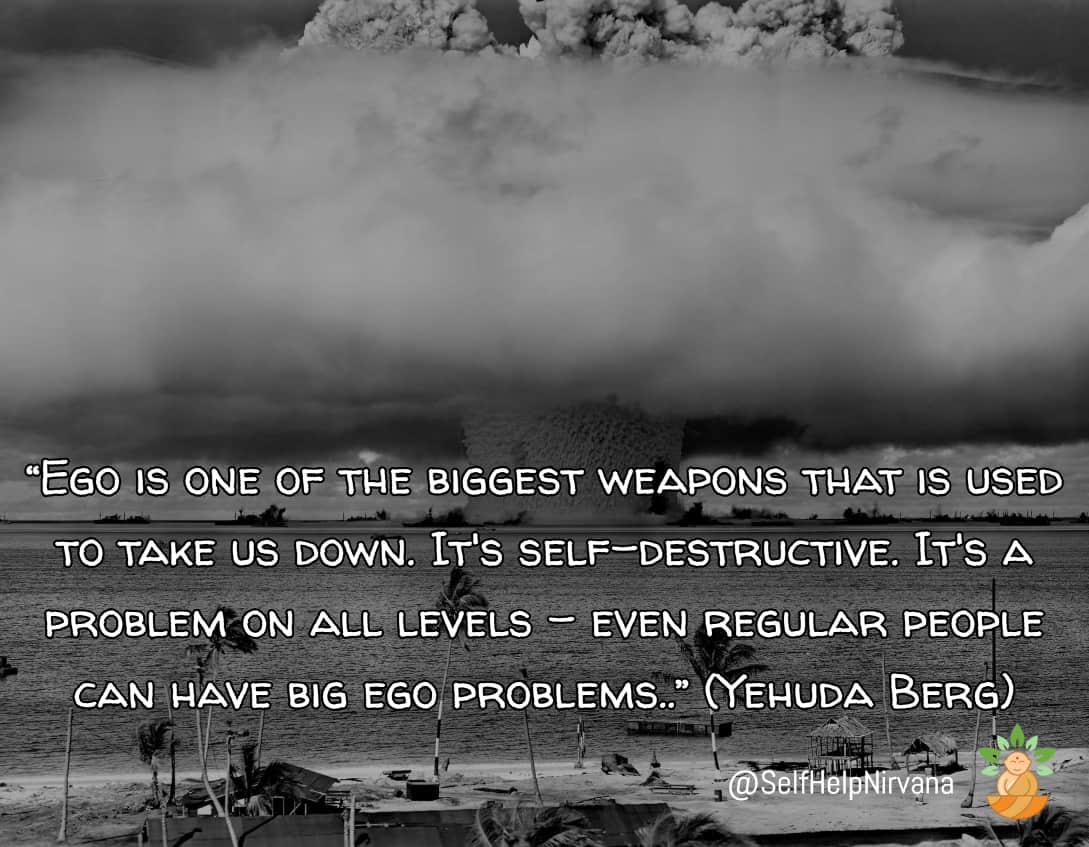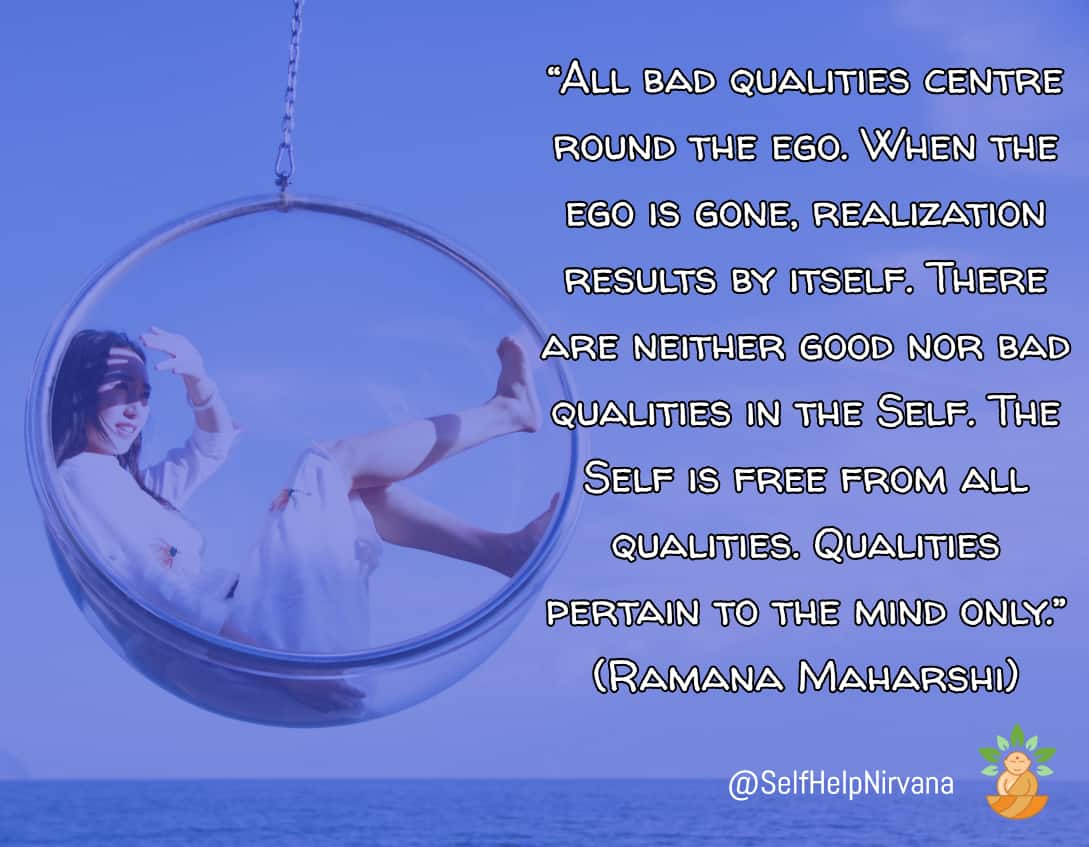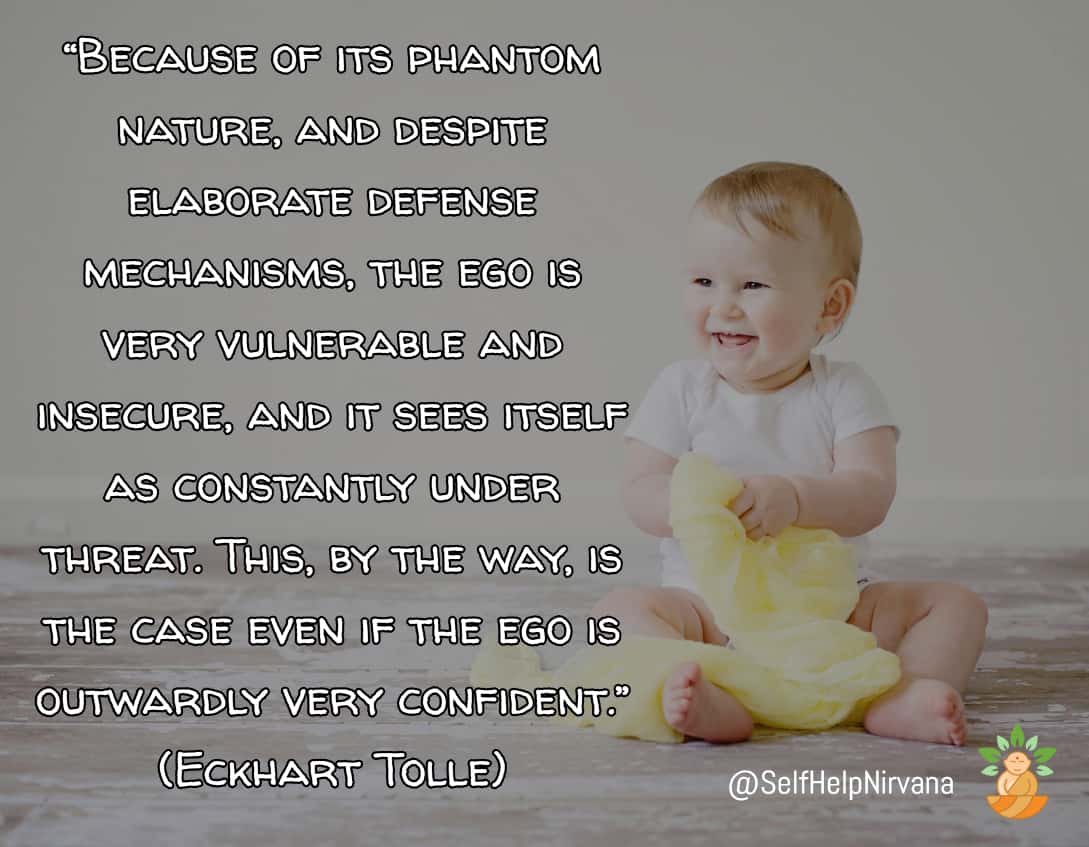The Uncomfortable Truth About Ego
Introduction
A healthy amount of ego facilitates success and happiness – but how much is too much?
On the one hand, you have the Donald Trumps of the world. Nobody would argue that he has a big ego.
You might admire his money, cars, planes, helicopters, penthouse, or his younger, attractive wife – but it can easily be argued that he’s insecure.
He’ll never have enough money, attention, or admiration to take a break from his pursuit of those things.
And his motivation is to impress himself and others.
Imagine being thirsty all of the time – you spend all your time either thinking about water, searching for it, or drinking it, but it’s never enough, because you’re still thirsty all the time.
Donald Trump will never have enough.
Contrast that with a Buddhist monk.
He has nothing – he’s only permitted to own a bowl, a spoon, and a couple of robes.
Money, sex, and entertainment are out of the question. Buddhist monks aren’t even allowed to prepare their own food – somebody else has to do it for them.
They spend their days helping others, not helping themselves – but they are content, and require nothing else to be happy.
On the other hand, those with a big ego tend to be the same people that accomplish amazing things. They’re the people that make a billion dollars, invent technologies that change society, and become CEOs or high-level politicians.
There’s another type of ego. The ego of confidence or being pleased with yourself.
Without some ego, you will lack the confidence to reach even a minimal level of success – but too much ego results in overconfidence and poor judgement.
What’s the solution?
Well, it’s up to you, but as with many things in life, for most people, the answer lies somewhere in the middle.

Defining The Ego
How many types of ego are there?
Some philosophers have defined as many as seven types, but in the interest of practicality, we’ll only consider two:
- Your sense of self-esteem or self-importance.
- The part of you that feels a need to impress yourself or others. For example, buying an expensive car for the purpose of impressing your neighbour is an ego-driven activity. You wouldn’t have purchased it if nobody would ever see it. Or you may want to prove to yourself that you can run a marathon. That’s also an ego-driven decision.
The first type is necessary, but must be possessed in the proper amount – too little is paralyzing, while too much leads to arrogance.
The need for the second type of ego is debatable. It might be useful under the right circumstances, but it’s not a happy place to be. When you’re jumping through hoops and making decisions to impress somebody, including yourself, you’re not as free as you can be. You’re a servant.

The Ego Of Self-Esteem
This type of ego is important to possess, but within reason.
You want to have a strong enough ego that you can handle the challenges of life and achieve your goals.
A healthy amount of self-esteem and self-confidence is necessary for success and good mental health.
And there are disadvantages to having too little ego of self-esteem:
- Depression. Those with low self-esteem and low self-worth are more likely to suffer from depression. Low self-esteem has also been shown to increase the likelihood of obsessive-compulsive behaviours and addiction.
- Lack of assertiveness. Being assertive requires confidence. A lack of assertiveness leads to feelings of disempowerment. And when you can’t voice your opinions, desires, and needs, they’ll rarely be fulfilled
- Passive-aggressiveness. When you can’t voice your opinions freely, you may resort to giving them subtly, without taking responsibility for them. You might punish a friend for being late by “forgetting” to pick him up at the airport. It might make you feel a little better, but it fails to address the real issue.
- Overachievement or underachievement. Those with low self-esteem may overachieve or underachieve. The results are very different, but the motivation is the same – the overachiever is attempting to compensate for his poor self-image, while the underachiever figures he can’t do anything worthwhile, so why even try?
- Poor social skills. Interacting confidently with others requires self-esteem. When you’re lacking confidence and feel uncomfortable, you make others feel uncomfortable, too. A small ego makes for awkward company.
- Anxiety. Low self-esteem and high self-doubt go hand-in-hand. If you’re concerned about the future or your ability to handle what life brings, you’ll feel anxiety. A lack of self-confidence naturally results in anxiety.
- Strained relationships. Those with low self-esteem struggle in relationships. They can’t openly share their needs or ask for help. They’re needy and have poor boundaries.
You want to avoid being arrogant, but going through life with low self-esteem is a difficult path.
It’s good to be humble, but taking it too far is detrimental to your life, happiness, and success.
While too little ego can be a bad thing, having too much can also present challenges.

There are also disadvantages to having too much ego:
- Arrogance. Arrogance ultimately leads to failure, because being overconfident in your abilities leads to poor decisions and mistakes.
- You’re less likeable. A few women are drawn to arrogant men, but most members of both genders find arrogance obnoxious and undesirable. Being arrogant will damage your social life and relationships.
- Selfishness. If you’re overly pleased with yourself, you’ll think you deserve more than everybody else. Your needs are more important than everybody else’s. Selfish people can be successful, but expect to be lonely and disliked.
The ability to make good decisions is important – poor decisions lead to trouble, and arrogance leads to poor decisions.
So avoid being arrogant, because there’s nothing to be gained.
If your ego needs a boost, there are many ways to approach it.

How To Build Your Ego:

Sorry - The Rest Of This Article Is Only For Self Help Nirvana Members
JOIN NOW FOR ONLY $7Self Help Nirvana is an online community for everybody whose goal is personal improvement and development. Become a Self Help Nirvana member today and get access to everything here at SelfHelpNirvana.com!
Already a member? Sign in.






